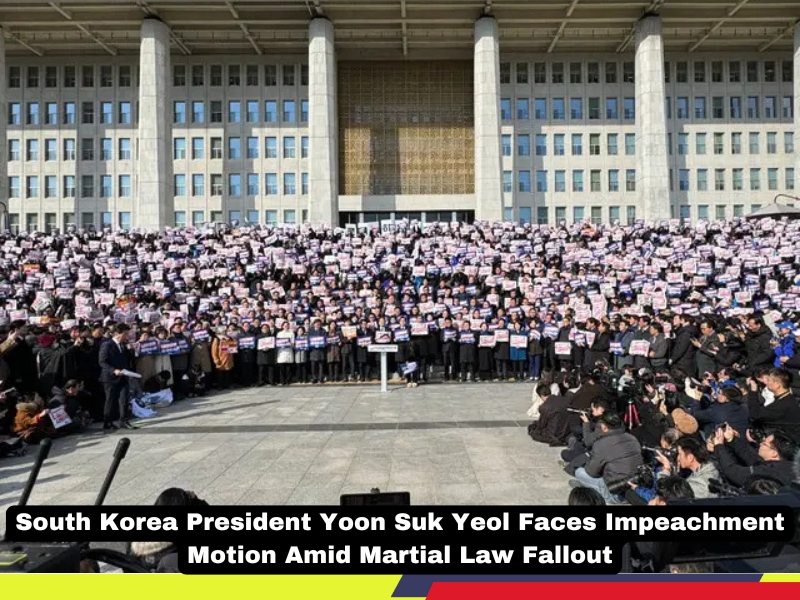South Korean politics are in turmoil as lawmakers prepare to deliberate an impeachment motion against President Yoon Suk Yeol, following public outrage over his brief imposition of martial law. The move, which has sparked protests and widespread criticism, has placed his administration under intense scrutiny and threatens to destabilize one of Asia’s most prominent democracies.
The Martial Law Controversy
President Yoon’s announcement of martial law came unexpectedly in a televised address, citing the need to maintain national security and public order. The declaration evoked memories of South Korea’s authoritarian past, when military rule stifled dissent and civil liberties. Although martial law was rescinded within hours amid mounting backlash, the damage to Yoon’s credibility was already done.
The public viewed the act as an overreach of executive power, with many accusing Yoon of undermining South Korea’s hard-earned democratic principles. Protesters have taken to the streets in major cities, demanding his resignation. Lawmakers from both the opposition and some within his own party have echoed public sentiment, leading to the introduction of the impeachment motion.
Political Fallout
The impeachment bill, introduced in the National Assembly, underscores the deep divisions within South Korean politics. While President Yoon’s conservative administration had already faced criticism over economic stagnation and rising inequality, the martial law incident has further alienated voters.
The president’s approval ratings have plummeted, with analysts pointing to a loss of trust in his ability to govern responsibly. Several of his top aides have offered to resign, signaling disarray within the administration. Meanwhile, opposition leaders have seized the moment to call for greater accountability and transparency in government.
What’s Next?
If the National Assembly votes to proceed with impeachment, the case will move to South Korea’s Constitutional Court, which will determine whether Yoon violated the law and should be removed from office. In the interim, public protests are expected to intensify, with civil society groups rallying to hold the administration accountable.
Historical Context
South Korea’s political history is marked by its transition from military rule to a robust democracy, achieved through decades of struggle by its citizens. The brief imposition of martial law has struck a nerve, as it serves as a stark reminder of the country’s turbulent past. For many, Yoon’s actions symbolize a regression that must be confronted.
The Broader Implications
The impeachment motion reflects the fragility of democratic institutions and the importance of checks and balances in governance. South Korea’s handling of this political crisis will likely influence its international standing and serve as a lesson for other democracies facing internal challenges.
As South Koreans await the next chapter in this unfolding drama, the world watches closely, recognizing the stakes involved in preserving democratic values in one of Asia’s leading nations.




